Need to cover activities that involve data collection and sharing
After nearly 20 years of implementing the 2005 Commercial Law, commercial activities have shifted from direct to digital environment at a very fast pace. However, new business models such as social sales networks, livestreaming, cross-border trade, multi-service e-commerce platforms... do not have a complete legal corridor, leading to many shortcomings in management. Therefore, National Assembly deputies believe that the development of the E-Commerce Law is an important step in institutionalizing the national digital transformation policy.
Regarding the subjects of application, Article 2 of the draft Law stipulates that "This Law applies to domestic and foreign organizations and individuals participating in e-commerce activities in Vietnam".
Taking the example of violations in the production and trading of functional foods by Ngan 98, National Assembly member Be Minh Duc ( Cao Bang ) proposed adding the subject "household" to the subject of application of this law. The reason is that the subject "household" is not included in the subject "organization". Adding the subject "household" to the subject of application will ensure comprehensive management, not omitting cases like Ngan 98 - who used her biological mother's name to register a business for her household.
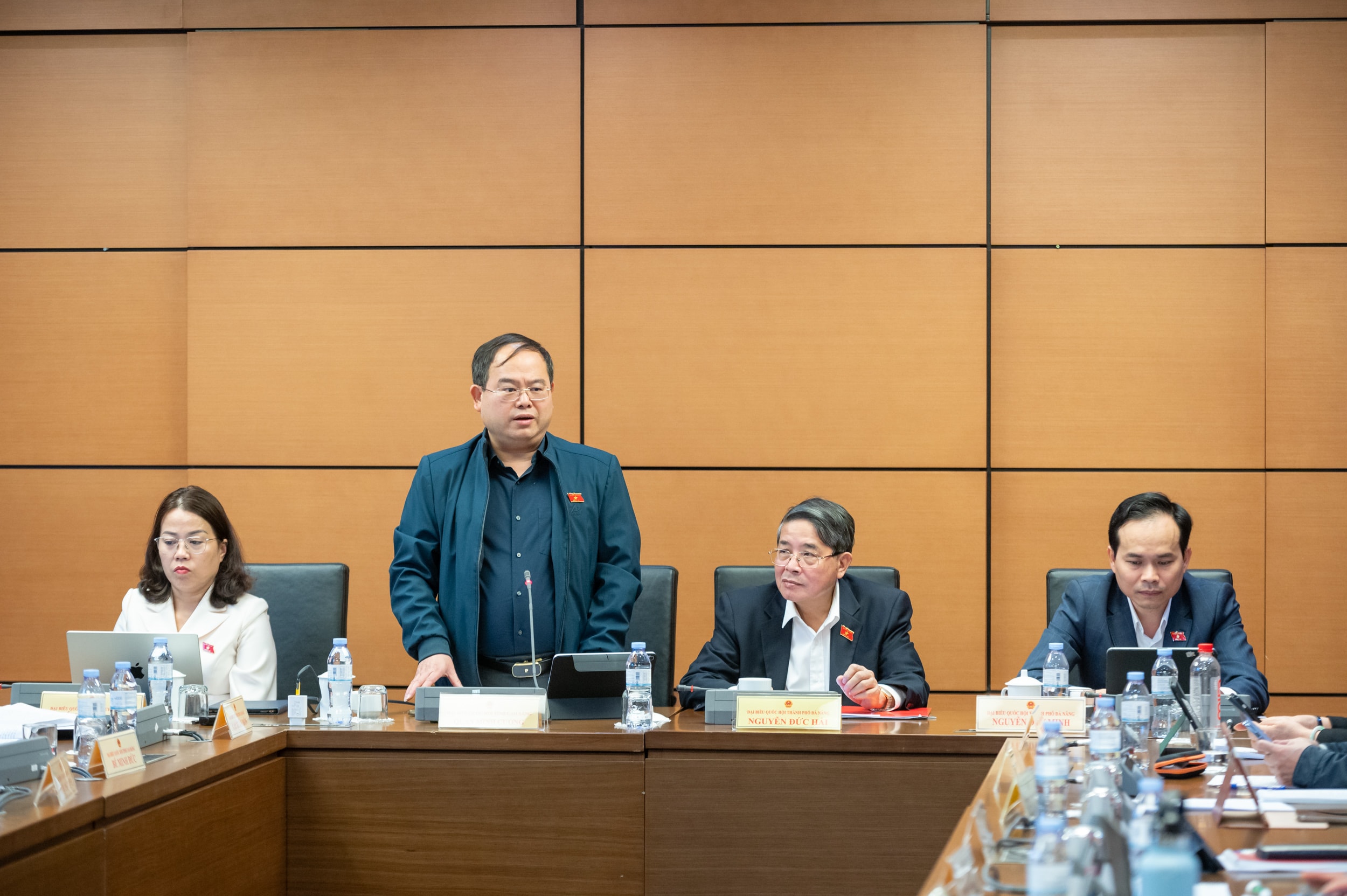
Pointing out that the recent situation of trading in fake medicines and functional foods on e-commerce platforms has caused many consequences for consumers, National Assembly Deputy Quan Minh Cuong (Cao Bang) said that "most purchases on e-commerce platforms today are made with trust"; at the same time, he wondered how the Law will regulate, protect and support consumers in cases where the real value of goods is not commensurate with the value advertised on e-commerce platforms?
From that reality, delegate Quan Minh Cuong proposed to add the state management function for e-commerce activities, not only assigning it to the Ministry of Industry and Trade but also clearly defining the responsibilities of the People's Committees of provinces and cities. "If local authorities are not proactive and actively involved, it will be difficult to effectively manage and ensure that e-commerce activities take place transparently, according to standards and healthily," the delegate emphasized.
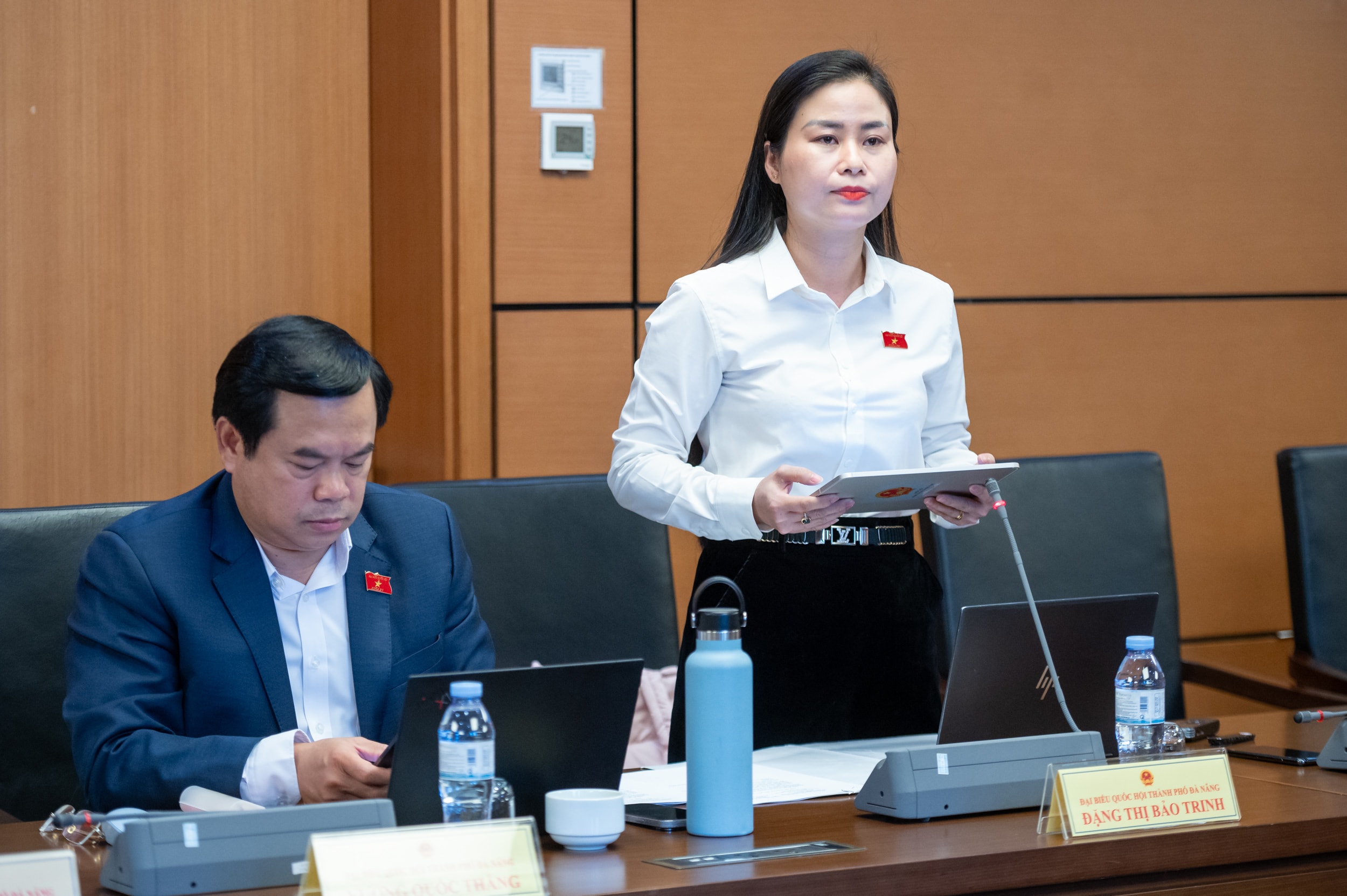
Delegate Dang Thi Bao Trinh (Da Nang) also said that livestream sales are essentially a form of commercial advertising in the electronic environment, but in today's trend, this form has strong interaction and spread, directly affecting consumers. Therefore, it is necessary to clearly stipulate measures to control and prevent violations in livestream sales activities; clearly define responsibilities between sellers, livestreamers and e-commerce platform owners.
Regarding products that require confirmation of advertising content, delegate Dang Thi Bao Trinh suggested that it is necessary to clearly stipulate that the seller is the subject requesting permission; the livestreamer must present a confirmation document to the platform before broadcasting live. “Such a regulation will both increase transparency and protect consumer rights, especially in the context of the emergence of counterfeit goods, goods of unknown origin, and even banned goods on social networks,” the delegate emphasized.
Avoid creating barriers for small and medium-sized enterprises
Regarding the responsibilities of sellers on intermediary e-commerce platforms and social networks operating e-commerce (Article 19), the draft Law stipulates "providing e-commerce platform owners with electronic identification information for sellers with domestic business locations; documents proving legal operations for foreign sellers".
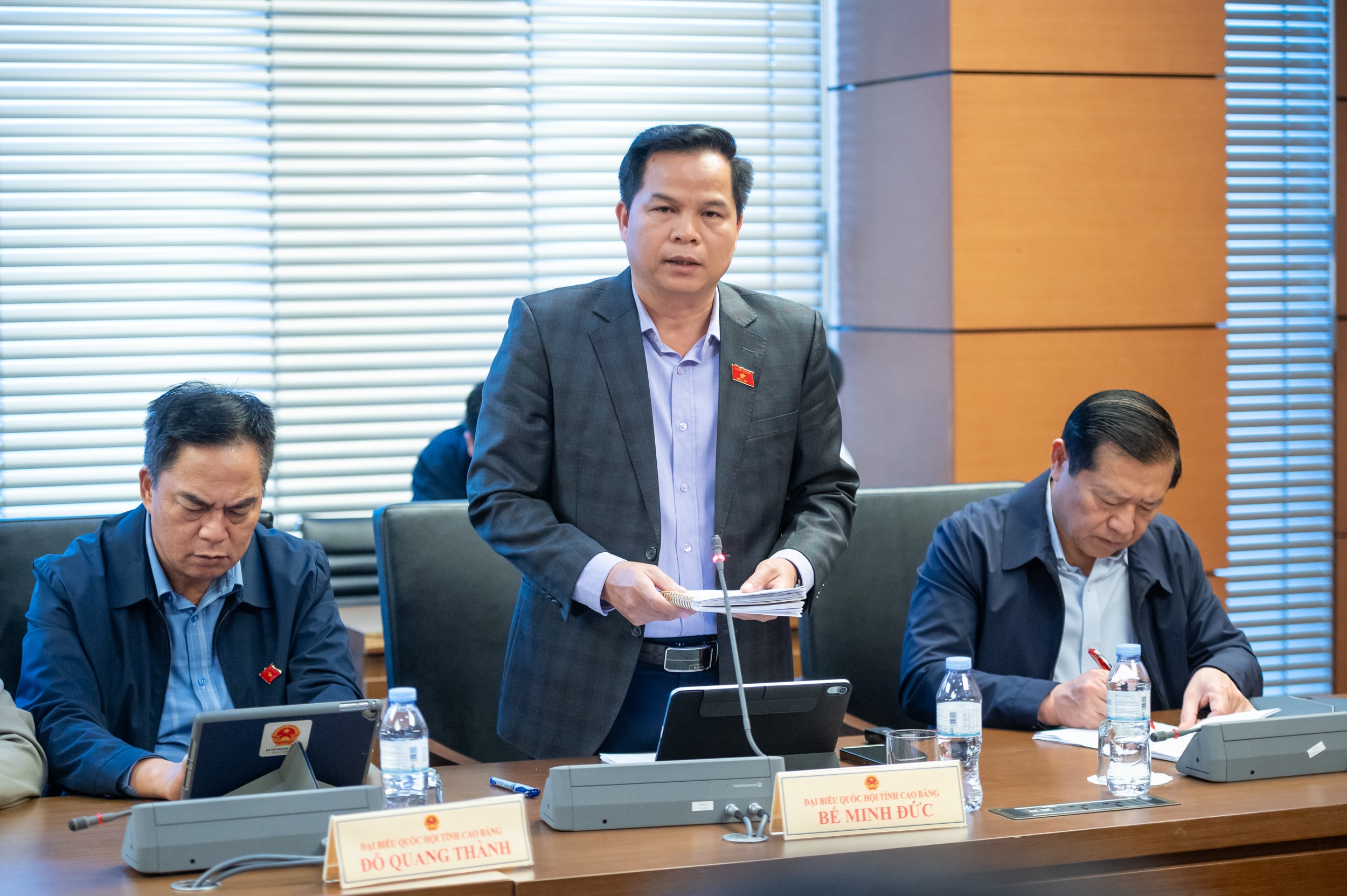
Delegate Be Minh Duc said that with this regulation, intermediary e-commerce platforms are required to electronically authenticate the identity of sellers, including new sellers entering the market. However, new sellers entering the market have not really had a big impact as they do not have much revenue; at the same time, they need to adapt to the new market.
Therefore, the delegate believes that it is inappropriate to require new sellers entering the market to immediately carry out administrative procedures. Electronic identification is not the only way to identify sellers, but can be done through registered phone numbers, bank accounts receiving money...
To facilitate new sellers entering the market, delegate Be Minh Duc proposed amendments in the direction of only requiring electronic verification of the seller's identity when the seller reaches the taxable income threshold. At the same time, supplementing regulations on applying sanctions to suppliers of counterfeit, fake or poor quality goods that affect consumer rights. Accordingly, when receiving complaints from consumers about counterfeit, fake or poor quality products, suppliers must be responsible for compensating and refunding to consumers.
Regarding this content, National Assembly Deputy Trang A Duong (Tuyen Quang) suggested that the drafting agency continue to review regulations on types and responsibilities of entities in e-commerce activities to avoid creating barriers for small and medium-sized enterprises, encourage the spirit of entrepreneurship, innovation and the active participation of the private sector in e-commerce development.
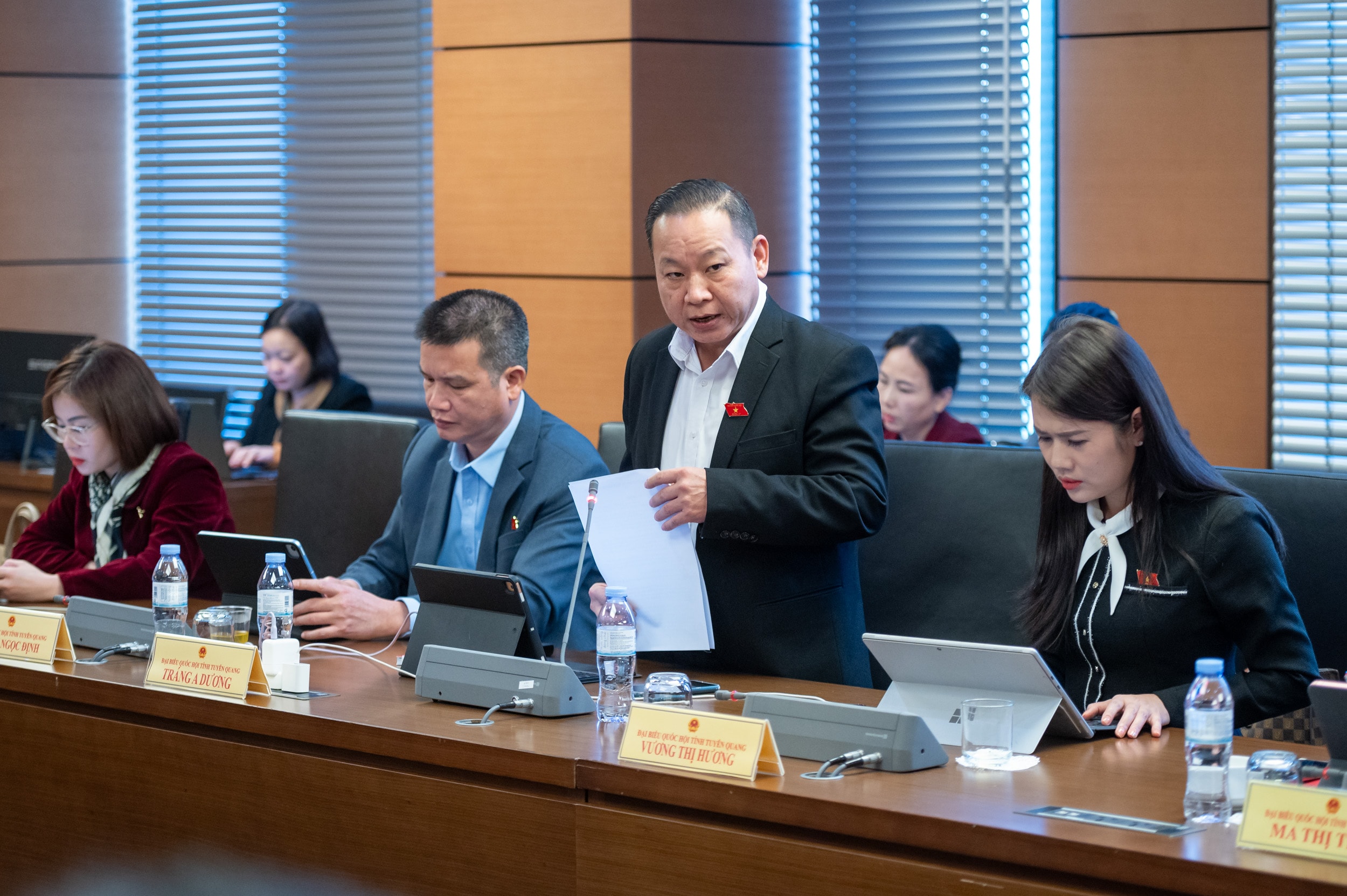
It is necessary to continue to study the classification regulations for large, medium and small-scale platforms, creating a favorable environment for flexible and innovative business models to develop. At the same time, it is necessary to avoid applying overly strict conditions to all types of businesses.
In particular, according to delegates, when building and perfecting regulations related to e-commerce development, it is necessary to carefully consider the impacts on many different subjects, including domestic and foreign enterprises, large and small technology platforms, in order to create favorable conditions for businesses when participating in e-commerce activities.
In addition, National Assembly member Ma Thi Thuy (Tuyen Quang) also stated that, according to the principles of international law, e-commerce platforms are not only technical intermediaries but also entities with independent legal responsibilities, because they control the transaction environment and directly benefit from this activity. Assigning legal responsibility to platforms is a balanced approach between promoting innovation and protecting public interests.
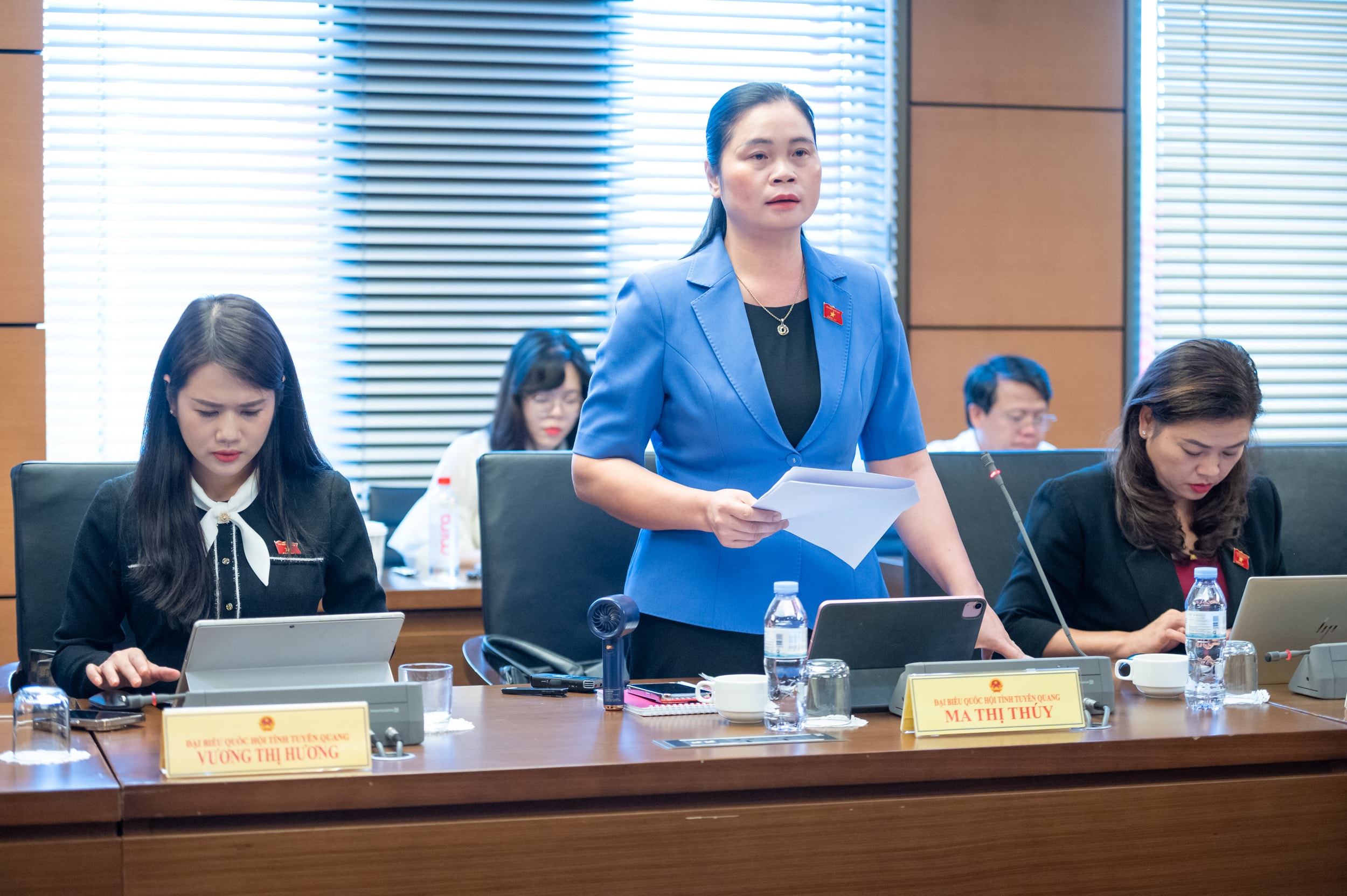
Vietnam currently has more than 70,000 e-commerce websites and applications, many of which cross-border platforms do not fully comply with domestic regulations. Thousands of consumer complaints related to e-commerce transactions have not been effectively resolved due to platforms' denial of responsibility.
Countries such as China and South Korea all stipulate the obligation to verify sellers, remove infringing goods, and protect consumers. Considering this a practice that needs to be referenced, delegates proposed adding a regulation that e-commerce platform owners are responsible for implementing a notification mechanism and removing illegal goods, services, and content when discovered or when requested by a competent state agency. At the same time, the Government is assigned to specify details on verifying sellers, the mechanism for removing infringing information, and the period for storing transaction data.
Source: https://daibieunhandan.vn/phan-dinh-ro-trach-nhiem-cua-nguoi-ban-nguoi-livestream-va-chu-quan-nen-tang-10394195.html


![[Photo] Ho Chi Minh City Youth Take Action for a Cleaner Environment](https://vphoto.vietnam.vn/thumb/1200x675/vietnam/resource/IMAGE/2025/11/04/1762233574890_550816358-1108586934787014-6430522970717297480-n-1-jpg.webp)

![[Photo] Panorama of the Patriotic Emulation Congress of Nhan Dan Newspaper for the period 2025-2030](https://vphoto.vietnam.vn/thumb/1200x675/vietnam/resource/IMAGE/2025/11/04/1762252775462_ndo_br_dhthiduayeuncbaond-6125-jpg.webp)

![[Photo] Ca Mau "struggling" to cope with the highest tide of the year, forecast to exceed alert level 3](https://vphoto.vietnam.vn/thumb/1200x675/vietnam/resource/IMAGE/2025/11/04/1762235371445_ndo_br_trieu-cuong-2-6486-jpg.webp)
![[Photo] The road connecting Dong Nai with Ho Chi Minh City is still unfinished after 5 years of construction.](https://vphoto.vietnam.vn/thumb/1200x675/vietnam/resource/IMAGE/2025/11/04/1762241675985_ndo_br_dji-20251104104418-0635-d-resize-1295-jpg.webp)


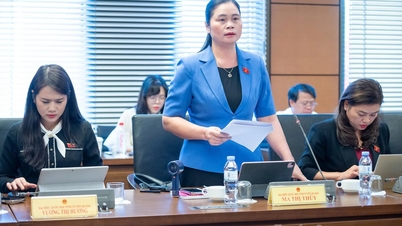

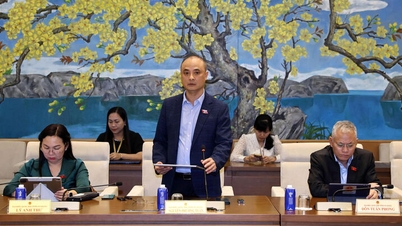

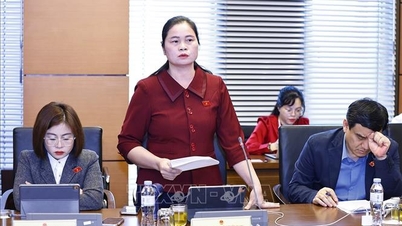








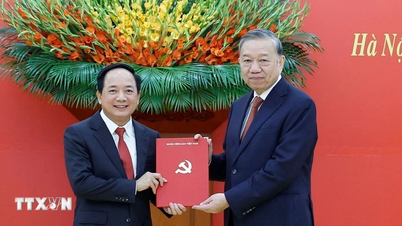

![[Photo] Prime Minister Pham Minh Chinh chairs the 20th meeting of the National Steering Committee on combating illegal fishing.](https://vphoto.vietnam.vn/thumb/402x226/vietnam/resource/IMAGE/2025/11/04/1762267178314_dsc-0115-jpg.webp)

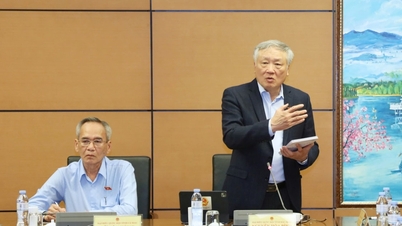





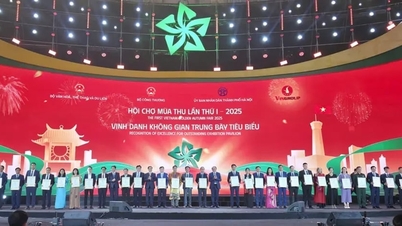

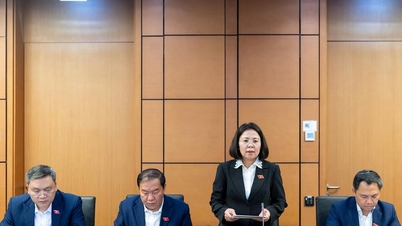
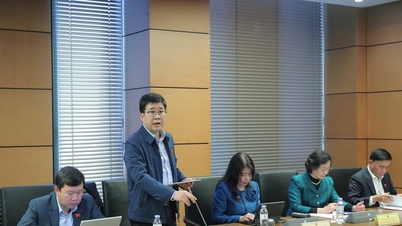
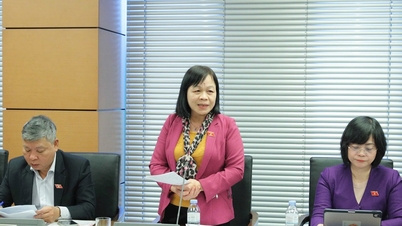






































































Comment (0)